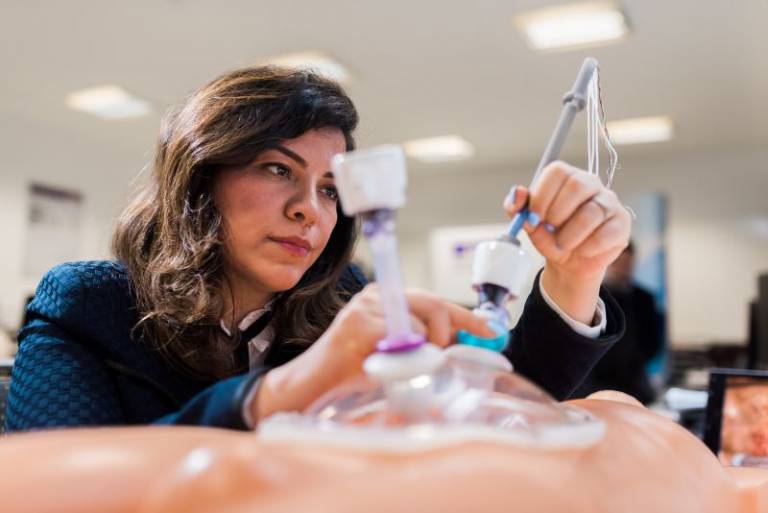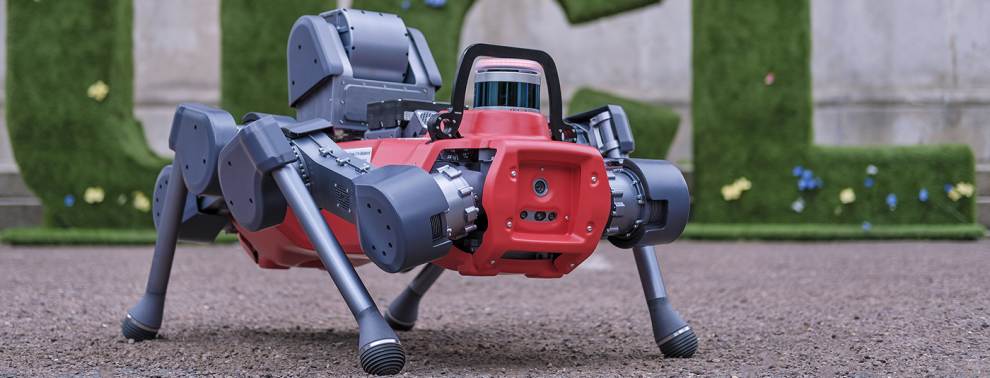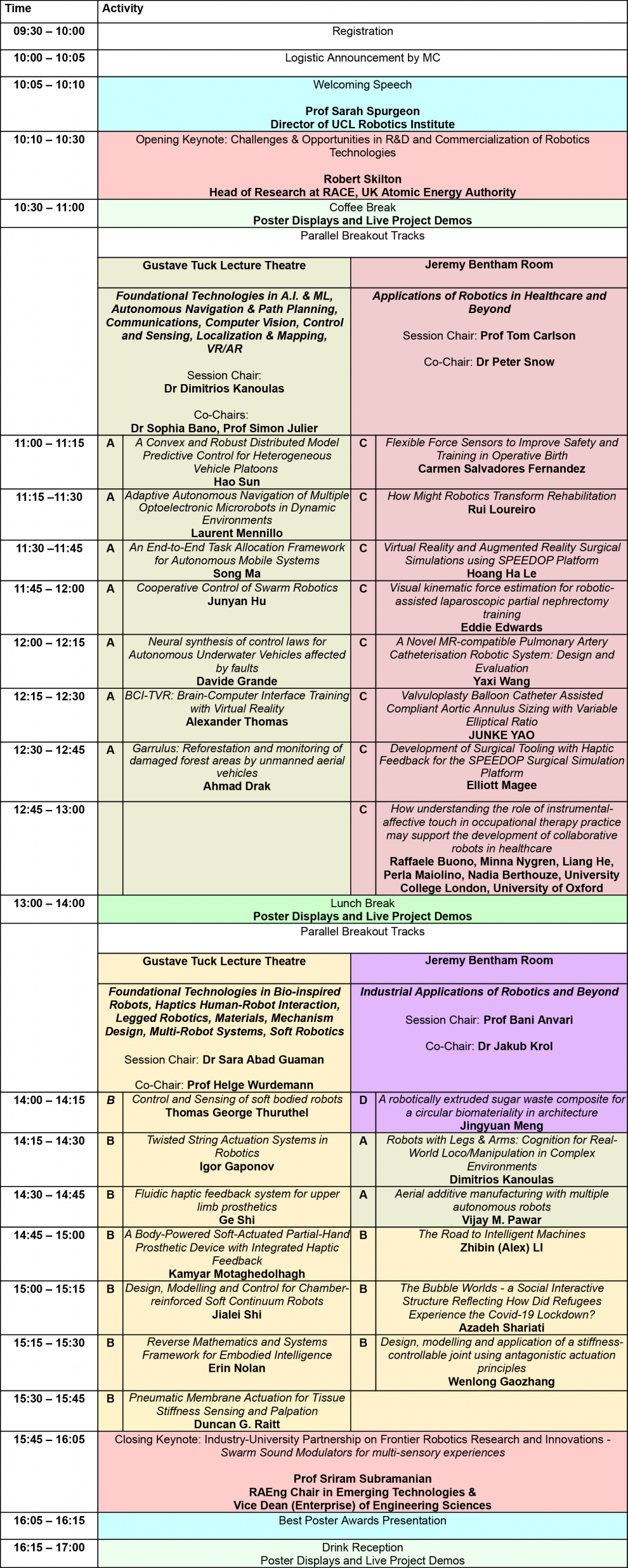UCL Robotics '23
17 February 2023, 10:00 am–5:00 pm

UCL Robotics '23 - the annual robotics workshop of the Robotics Institute, offers an excellent opportunity for you to meet, interact and engage with like-minded people working in the field of robotics and benefit from each other.
Event Information
Open to
- All
Availability
- Yes
Cost
- £0.00
Organiser
-
UCL Robotics Institute
Location
-
Gustave Tuck Lecture Theatre2nd Floor, South Junction, Wilkins BuildingGower StreetLondonWC1E 6BTUnited Kingdom
Registration closes on 31 January 2023.
#UCLRobotics23

A full-day workshop, the event will showcase the latest cutting-edge research and applications within robotics from across UCL, and provide a broader context with industry speakers.
The day will include research demonstrations, posters, speakers from both academia and industry, and opportunities to network with the wider community.
UCL Robotics prides itself on our multidisciplinary and holistic approach to robotics.
The research and innovation presented at UCL Robotics ‘23 will draw on work from across multiple faculties, divisions, departments, and research centres of UCL. They will be organised under the following 4 technology themes:
- Foundational Technologies in A.I. & ML, Autonomous Navigation & Path Planning, Communications, Computer Vision, Control and Sensing, Localization & Mapping, VR/AR
- Foundational Technologies in Bio-inspired Robots, Haptics Human-Robot Interaction, Legged Robotics, Materials, Mechanism Design, Multi-Robot Systems, Soft Robotics
- Applications of Robotics in Healthcare and Beyond (e.g. diagnosis, surgery, rehabilitation)
- Industrial Applications of Robotics and Beyond (e.g. field operations and services, manufacturing, transportation)
Agenda of UCL Robotics ’23

Seats are limited. Reserve your ticket today!
Registration closes on 31 January 2023.
About the Speakers
- Sarah Spurgeon, Head of Department of Electronic and Electrical Engineering, Professor of Control Engineering at University College London
Professor Sarah Spurgeon received B.Sc. and D.Phil. degrees from the University of York, York, U.K., in 1985 and 1988, respectively. She has held previous academic positions at the University of Loughborough, the University of Leicester and the University of Kent in the UK. She was appointed as Professor of Engineering at the University of Leicester in 2002 and was Head of their Department of Engineering from 2006-2008. She was Professor of Control Engineering and Head of the School of Engineering and Digital Arts at the University of Kent from 2008-2016. She is currently Head of Department of Electronic and Electrical Engineering and Professor of Control Engineering at UCL.
- Robert Skilton, Head of Research at RACE at UK Atomic Energy Authority
Rob Skilton is Head of Research at RACE, the robotics division within the UK Atomic Energy Authority, where he leads collaborative research with industry and academia on robotics and autonomous systems in nuclear fusion and decommissioning. Rob has been working in nuclear robotics for over 10 years and has been deeply involved in UK and international fusion robotics programmes as well as UK and international decommissioning research. Rob was responsible for leading various activities within the Robotics and AI for Nuclear (RAIN) Hub as well as developing and leading technical aspects of the LongOps programme, a £12M UK-Japan collaboration on digital tools to de-risk robotic decommissioning operations. Rob is currently leading on robotics within the UK Magnetic Fusion Research programme.
- Sriram Subramanian, Vice Dean (Enterprise) and Professor of Computer Science at University College London
Sriram Subramanian joined UCL from the University of Sussex in July 2020 and heads the multi-sensory devices group. He currently holds a Royal Academy of Engineering Chair in Emerging Technologies on novel interactive systems. His Chair and ERC Advanced grant are on the design and fabrication of new types of sound modulators with a specific emphasis on creating innovative displays, haptics and audio devices. He is primarily interested in the interplay of physical science, engineering and computation to design new and novel user-experiences. One example of such a design is the use of several hundreds of tiny ultrasonic speakers to create the sense of touch through air. This work led to the formation of Ultrahaptics (https://www.ultraleap.com/) a Bristol-based haptics company that he co-founded. Before joining Sussex, he was a Professor at University of Bristol and prior to that a senior scientist at Philips Research Labs in Netherlands. He holds an undergraduate in Physics, Masters in Electrical Communication Engineering and PhD in Industrial Design.
 Close
Close

